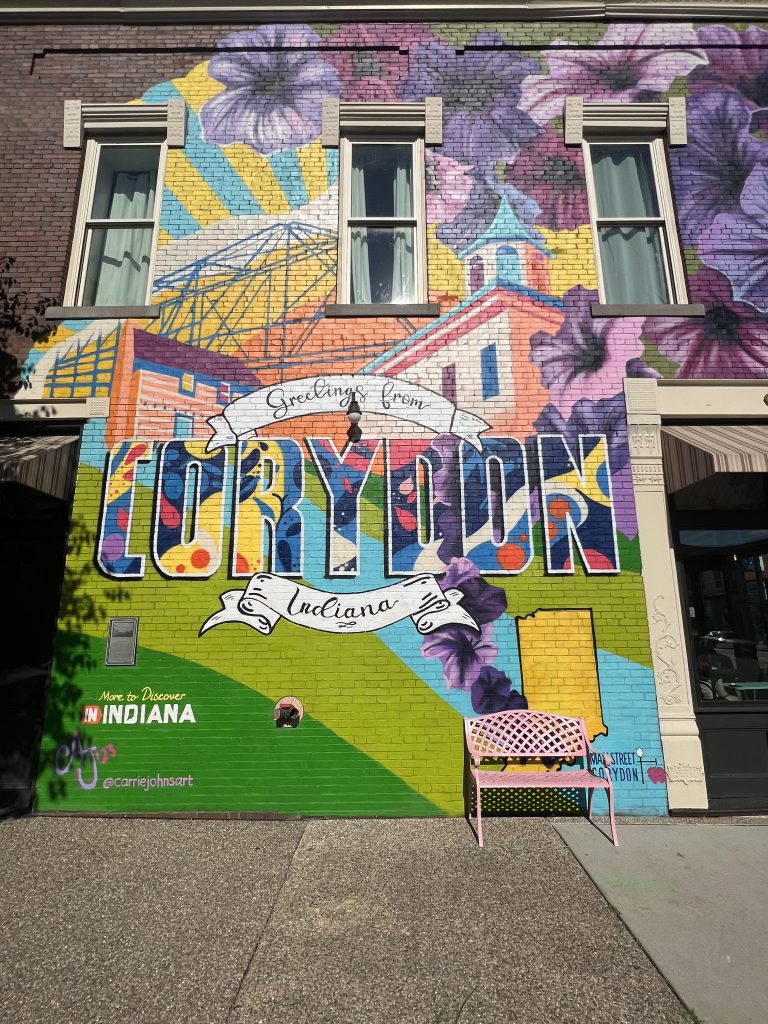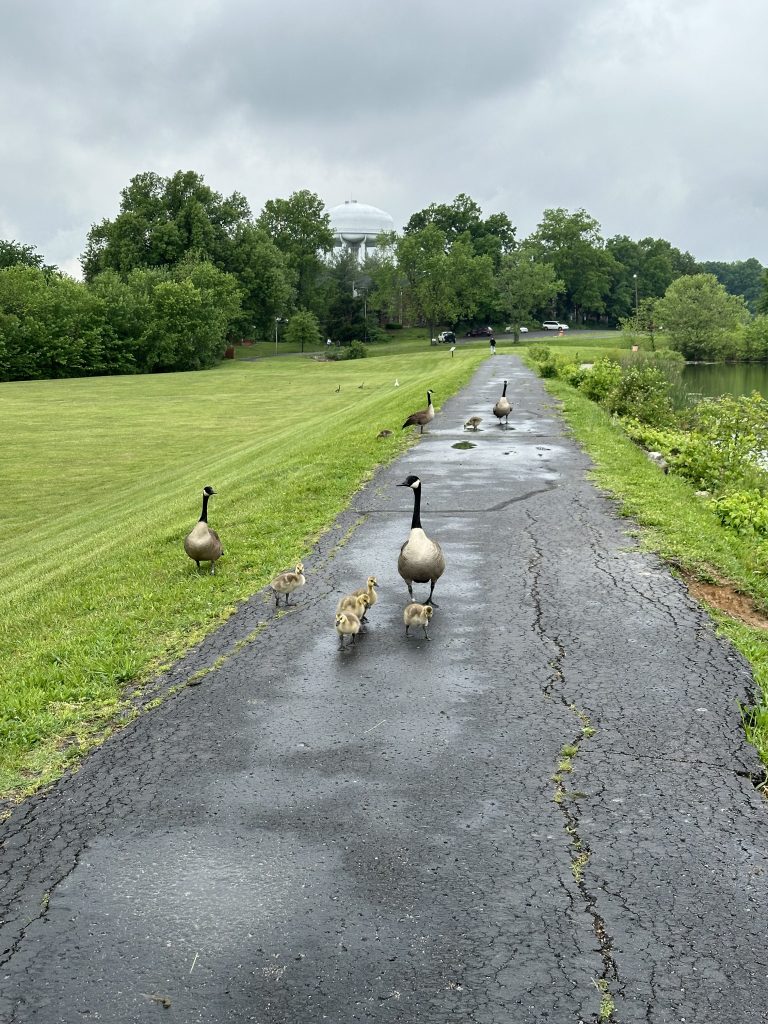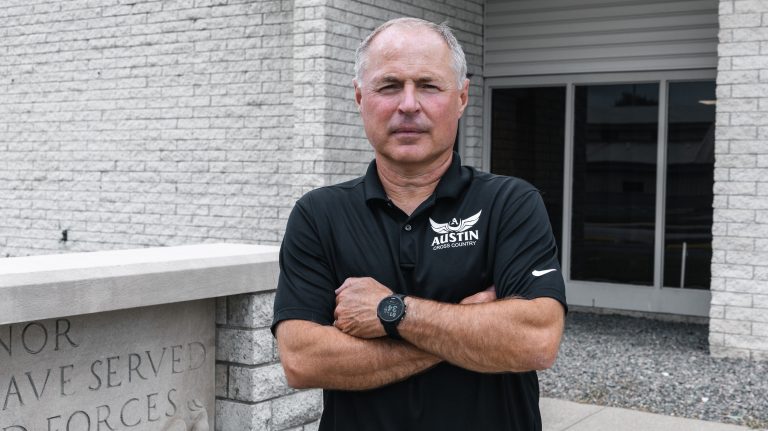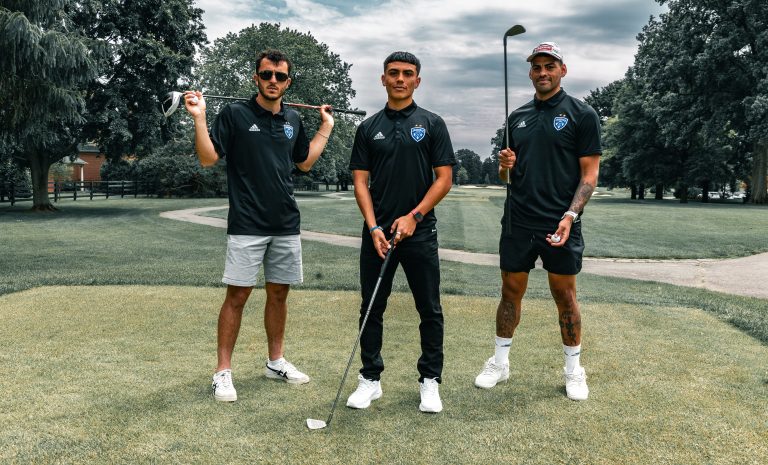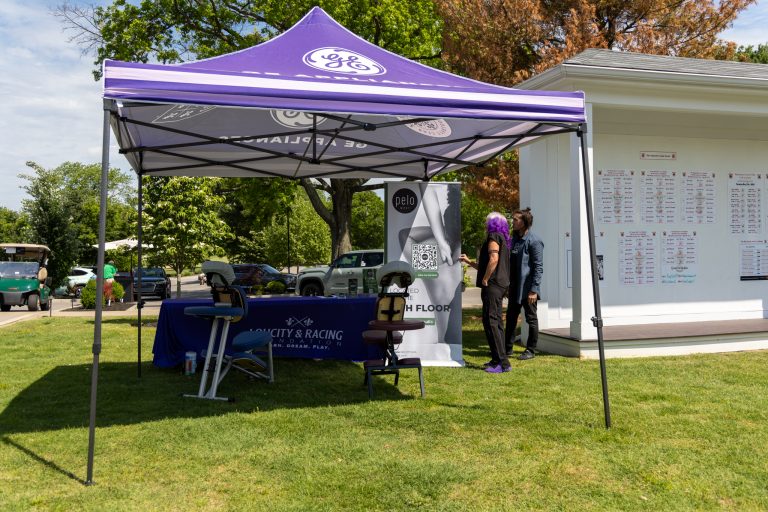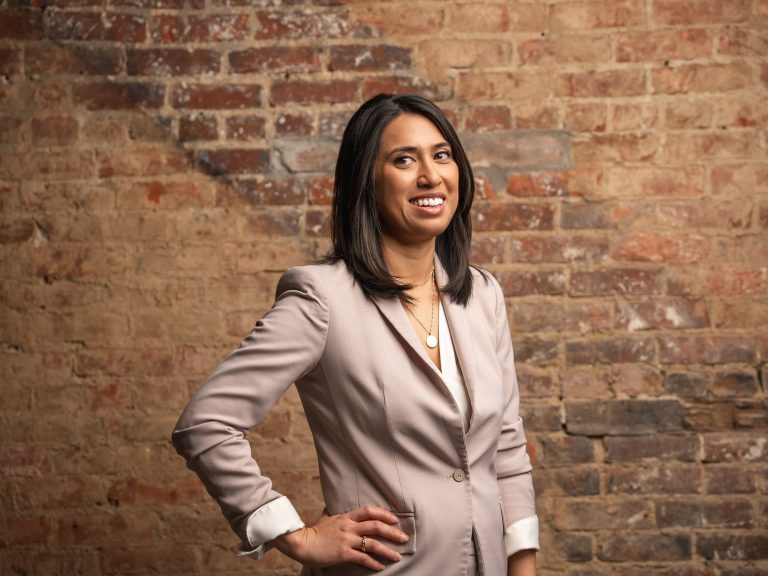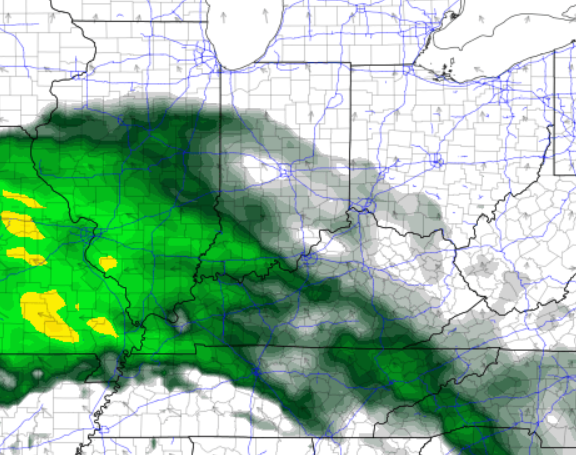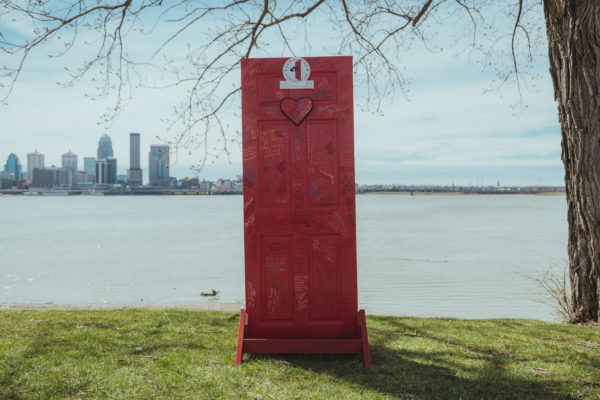

BY LISA HORNUNG | PHOTOS BY CHRISTIAN WATSON
IN DECEMBER 2015, Alan Hecht of Leavenworth was in his mid-60s, enjoying his life with his wife, children and grandchildren, when he got devastating news: He had pancreatic cancer.
He had eight rounds of chemo, Whipple surgery (a procedure to remove the head of the pancreas, the first part of the small intestine or duodenum, the gallbladder and the bile duct), then eight more rounds of chemo, then 30 rounds of radiation. The whole process took a toll on his life and his marriage.
“We were kind of getting after each other’s throats,” admitted Hecht.
His wife, Jackie, did some research and found Gilda’s Club, at 633 Baxter Avenue in Louisville. The two went and were interviewed, and they were placed into support groups that fit for their circumstances. Jackie was put in a group of people whose spouses were battling cancer, and Alan was put into a group of people with cancer.
“And you start to realize that you can talk to people on the same level as you with no barriers, and you go, ‘Hey you’re not so unusual after all.’ And what spouses do from the other side is trying to help their spouse heal as well. They just gave us a new sense, a new direction. Helped us understand, hey we’re not so unusual, even though we’re fighting all the same battle.”
Gilda’s Club was founded in 1995 by comedian and actor Gene Wilder, the widower of comedian Gilda Radner, who died of ovarian cancer in 1989. Wilder teamed up with Joanna Bull, Radner’s therapist, and movie critic Joel Siegel, who later died of colorectal cancer. The Louisville location has been open for more than 10 years, and its demand has exceeded its capacity, said Karen Morrison, president and CEO.

Jackie sign one of Gildas Clubs signature
red doors
Starting next month, the club will offer support groups at the Norton Cancer Institute’s Pat Harrison Cancer Resource Center at 1206 Spring St., in Jeffersonville, Morrison said.
Right now, Gilda’s Club only has about 12 percent of its members coming from Southern Indiana. “It’s really only about a mile from here,” Morrison said, “but we know there are a lot of folks, whether it’s the toll or the downtown traffic or whatever, who want to be in that community where they’re comfortable, and so we want to improve their access and make it comfortable for them.”
Alan and Jackie Hecht said they’re glad to see the expansion, but they were more than willing to cross the bridge. They drove to Gilda’s Club from Leavenworth, Indiana, which was a bit of a haul.
“I think it’s great,” Alan Hecht said. “I hope the people of Southern Indiana will take advantage of the opportunity given to them to improve their way to life. It doesn’t matter if you are in Louisville or Southern Indiana, people are going to have cancer.”
About a year from now, the club will move into a new one – just one mile away from its current site – at the corner of Ray Avenue and Grinstead Drive, which will be bigger and have more parking. In 2020, its opening a branch at 18th and Broadway streets, to meet the needs of people in the West End.
The Ohio River is a perceived barrier to getting help.

Hecht are grateful for Gildas Club
Louisville which is now offering support
groups in Southern Indiana
“West Louisville is a community that is missing a lot of resources, and so we just want to make it convenient and accessible as possible,” Morrison said. “It is a community that is disproportionately impacted by cancer. The Passport Health campus gave us an opportunity to go into a location where we could offer basically a mini-clubhouse where we will have two support group rooms, a small ‘Noogieland’ (for kids), a little kitchen. For those who can’t or won’t come here, we want to make sure they have access, and we are doing that in collaboration with Kentucky African Americans Against Cancer.”
Gilda’s Club Louisville sees about 1,600 unique individuals per year, with about 14,000 visits. About seven new people living with cancer come through its red doors every week, Morrison said. The club hosts support groups, cooking classes, gentle yoga classes, kids’ camps and activities, social events and more.
Now 69, Alan Hecht’s cancer has been in remission for more than a year. He knows he’s very lucky because pancreatic cancer is a killer. The five-year survival rate is only 9 percent.
When he gets his regular blood tests, the lab techs and nurses ask Hecht what kind of cancer he had. When he tells them “pancreatic,” they say, “You’ve got to be kidding me! You’re a miracle!” He attributes his positive attitude during his treatment to Gilda’s Club.
Hechgt still struggles with the toll the treatments have taken on his body. “Yes, it is a pain in the rear end, but it is a small price to pay,” he admitted. “I get to enjoy my wife. I get to enjoy my family. I get to enjoy my eight grand kids, so life’s pretty darn good.”
And he’s on a new mission now: “I made a promise that I was going to try to see if I could find the one dollar that opens the door to cure this disease,” Hecht said. In 2016, he bought a new “neon blue” Corvette, and he and his wife travel the country telling people his story.
And he often asks people to donate one dollar to cancer research in their communities.
Thanks to Gilda Radner’s comedy, Gilda’s Club is not just a place for tears, though there are still people who don’t win the battle, Morrison said. The club adheres to the idea that living with cancer is not a choice, but how you live with it is, “with joy, with style, with laughter, with purpose, that’s what Gilda’s Club is really all about. Gilda Radner said, ‘Cancer is the most unfunny thing I’ve experienced, but sometimes laughter beats the alternative,’ so there’s a lot of laughter here.”



